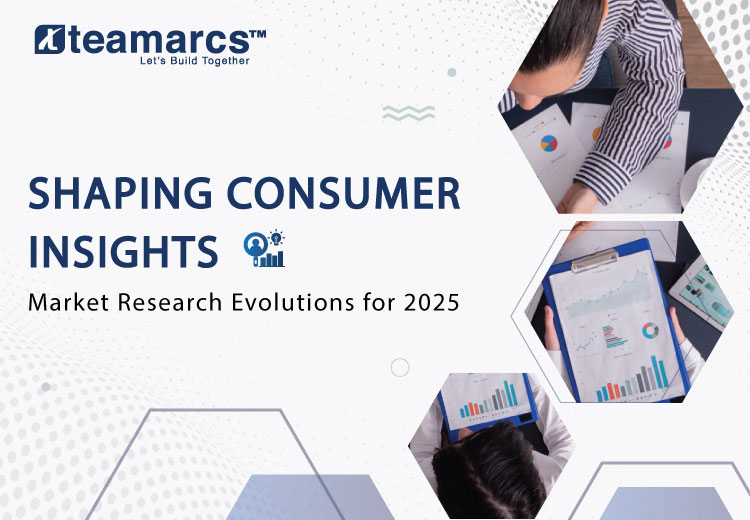Shaping Consumer Insights: Market Research Evolutions for 2025

Market research has always been the cornerstone of understanding consumers, guiding businesses in crafting strategies that align with their audience’s needs. As we approach 2025, the landscape of market research is evolving rapidly, driven by advancements in technology, changes in consumer behavior, and the growing need for ethical data practices. Let’s explore the trends shaping this transformation and what they mean for businesses seeking to stay ahead.
The Power of Artificial Intelligence and Machine Learning
Artificial Intelligence (AI) and Machine Learning (ML) are revolutionizing how businesses collect and analyze data. These technologies can process vast amounts of information at unprecedented speeds, uncovering patterns and trends that were once impossible to detect manually. AI-driven tools are also enhancing predictive analytics, helping companies anticipate future consumer behaviors and tailor their strategies accordingly.
For example, sentiment analysis powered by AI allows brands to understand customer emotions by analyzing social media posts, reviews, and surveys. This insight can guide product development, marketing campaigns, and customer service improvements.
Real-Time Data Collection
In the fast-paced digital age, real-time data has become a necessity. Consumers interact with brands across multiple channels—websites, apps, social media, and more—leaving behind a trail of valuable information. Modern market research tools now provide real-time insights, enabling businesses to respond quickly to changing consumer preferences.
For instance, a clothing retailer can track trending styles through social media mentions and adjust its inventory within days. This agility not only keeps businesses relevant but also strengthens their connection with consumers.
Emphasis on Personalization
Today’s consumers expect personalized experiences. Market research is evolving to help businesses deliver tailored offerings by focusing on micro-segmentation and hyper-personalization. Advanced data analytics tools can identify niche audience groups and predict their unique preferences, allowing brands to create customized products and services.
Netflix, for example, uses viewer data to recommend shows and movies, creating a deeply personalized user experience that boosts engagement and retention.
The Rise of Ethical Data Practices
As consumers become more aware of their digital footprints, the demand for ethical data practices is growing. Transparency in how data is collected, stored, and used has become a critical component of market research. Businesses must prioritize consumer consent and comply with regulations such as the General Data Protection Regulation (GDPR) and the California Consumer Privacy Act (CCPA).
Incorporating ethical practices not only builds trust with consumers but also ensures long-term sustainability in data-driven decision-making.
Integration of Behavioral Science
Behavioral science is becoming an integral part of market research, offering deeper insights into why consumers make certain decisions. By understanding cognitive biases, motivations, and decision-making processes, businesses can design more effective marketing strategies and product offerings.
For example, the concept of “social proof” can be leveraged to influence purchasing decisions by showcasing customer reviews or testimonials.
The Role of Mixed-Method Research
While technology enhances quantitative research, qualitative methods remain essential for capturing the human aspect of consumer behavior. Mixed-method research, which combines quantitative and qualitative approaches, is gaining traction. This holistic view enables businesses to understand both the numbers and the narratives behind consumer actions.
Also Read: Unlocking Market Insights: How AI-Driven Market Research Platforms Meet Competitive Expectations
Preparing for 2025 and Beyond
To thrive in the evolving market research landscape, businesses must:
- Adopt Cutting-Edge Technologies: Invest in AI, ML, and real-time analytics tools to stay competitive.
- Focus on Ethical Practices: Build trust through transparency and adherence to data protection laws.
- Embrace Personalization: Use insights to create customized experiences that resonate with consumers.
- Combine Quantitative and Qualitative Approaches: Leverage mixed-method research to comprehensively understand consumer behavior.
By staying adaptable and forward-thinking, businesses can harness these trends to unlock deeper consumer insights and drive success in 2025 and beyond.